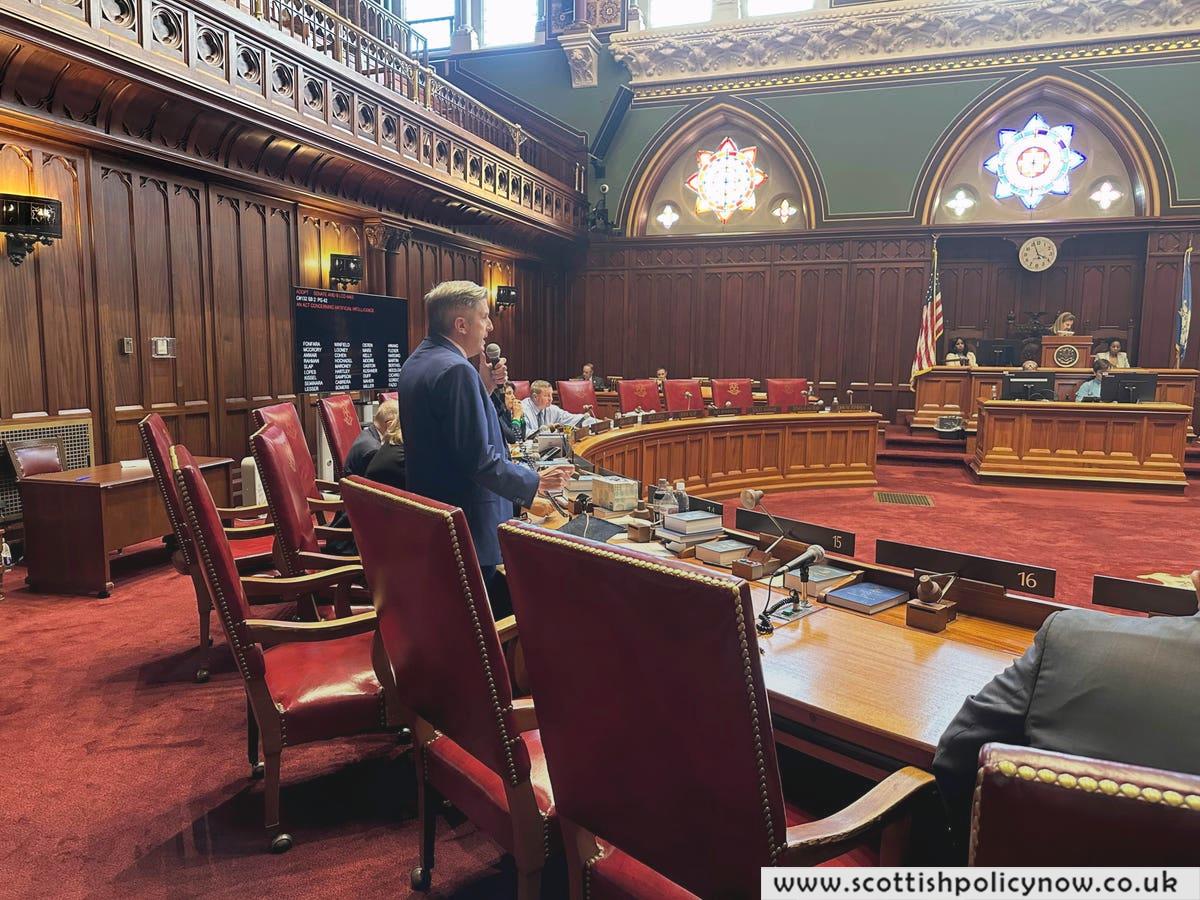The Connecticut Senate advanced one of the first significant legislative proposals in the U.S. to curb bias in artificial intelligence (AI) decision-making and protect individuals from harm, such as manipulated videos or deepfakes.
Despite concerns that the bill could stifle innovation, burden small businesses, and make Connecticut stand out as an outlier, the Senate approved the measure in a 24-12 vote after a lengthy debate. This bill is the culmination of two years of task force meetings in Connecticut and a year of collaboration among a bipartisan group of legislators from various states. The aim is to avoid a patchwork of AI regulations across the U.S., given Congress’s inaction on the matter.
“I think that this is a very important bill for the state of Connecticut,” said Democratic Senator James Maroney, the bill’s primary author. “It’s very important, I think, also for the country as a first step to get a bill like this. Even if it were not to come and get passed into law this year, we worked together as states.”

Legislators from Connecticut, Colorado, Texas, Alaska, Georgia, and Virginia, who have been collaborating on AI legislation, find themselves in the middle of a national debate between civil rights groups and the AI industry over key aspects of the proposed laws. Several of these legislators, including Maroney, participated in a press conference last week to emphasize the need for AI regulations and highlight their work with industry, academia, and advocacy groups to create proposed regulations for safe and trustworthy AI.
However, Senate Minority Leader Stephen Harding, a Republican, expressed concerns about being rushed to vote on what he described as the most complex piece of legislation in the session, scheduled to adjourn on May 8. He warned that the bill could have unintended consequences that might harm businesses and residents in Connecticut.
“I think our constituents are owed more thought, more consideration to this before we push that button and say this is now going to become law,” Harding said.
In addition to resistance from Republican lawmakers, some key Democrats in Connecticut, including Governor Ned Lamont, expressed concerns that the bill might hinder innovation in an emerging industry. Lamont, a former cable TV entrepreneur, “remains concerned that this is a fast-moving space, and that we need to make sure we do this right and don’t stymie innovation,” said his spokesperson, Julia Bergman.
The bill seeks to protect consumers, tenants, and employees by addressing AI-related discrimination based on race, age, religion, disability, and other protected classes. It criminalizes the spread of deepfake pornography and deceptive AI-generated media in political campaigns. The legislation also mandates digital watermarks on AI-generated images to ensure transparency.
Additionally, some AI users will need to develop policies and programs to reduce AI discrimination risks. The bill also creates an online AI Academy where Connecticut residents can take AI-related classes and ensures AI training is part of the state’s workforce development programs.
While some advocates believe the bill doesn’t go far enough, there have been calls to restore a requirement that companies must disclose more information to consumers before using AI to make decisions about them.
The bill now moves to the House of Representatives for consideration.








